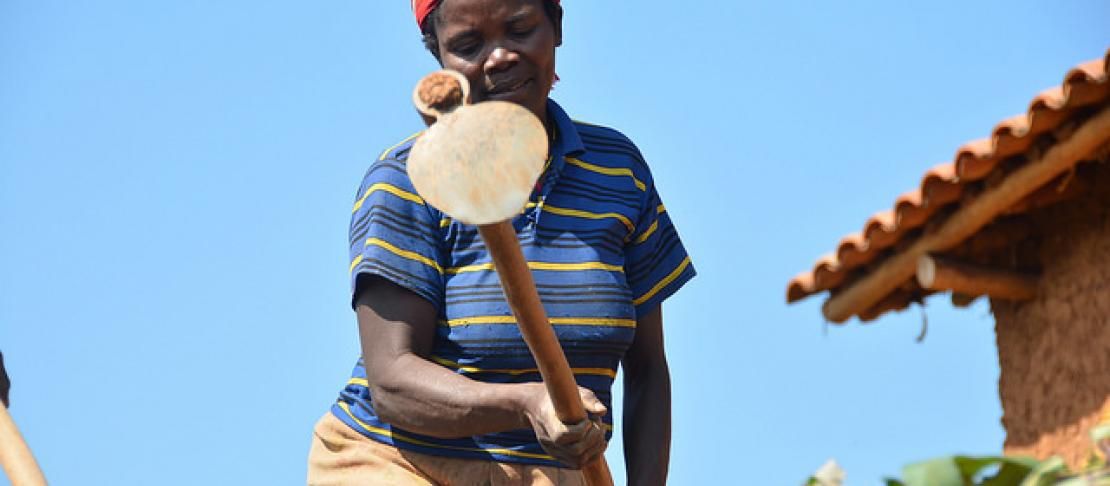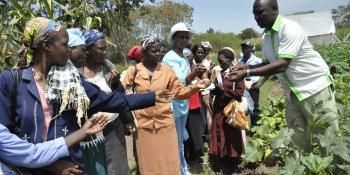Establishing the foundation for climate services in Rwanda

A baseline survey unravels farmers’ information needs in Rwanda, and sets the stage for testing the practical value of climate information in farmers’ decision-making.
Rwanda has been confronted by the vagaries of a changing climate in recent years. Hailstorms, floods, strong winds, heavy rains leading to landslides, prolonged droughts and changed weather patterns have become more recurrent, making seasons increasingly unpredictable and traditional indicators no longer suitable. This has many implications for the mostly rain-fed agriculture sector in Rwanda, which is also the main source of subsistence for the majority of the country’s population. Agriculture contributes to 30% of the GDP, whereas pastoralism, practiced only in small pockets of dry areas in the country, contributes to 10% of the GDP.
Setting the base
The CGIAR Research Programme on Climate Change, Agriculture and Food Security (CCAFS) and the World Agroforestry Centre (ICRAF) in collaboration with the International Center for Tropical Agriculture (CIAT) are leading the research-based monitoring and evaluation component of the Rwanda Climate Services for Agriculture project. Funded by the United States Agency for International Development (USAID), the project seeks to transform Rwanda’s rural farming communities and national economy through improved climate risk management. In order to establish a research baseline for the project, surveys were conducted in 30 districts in Rwanda. The survey sought to assess:
- Climate risks and coping strategies among farmers;
- Climate information, sources of information, use of information for decision making by farmers and institutions; and
- Climate information services and impacts on crop farming, livestock management and other livelihoods
Using a combination of computer aided personal interviewing (CAPI) and key informant interviewing techniques, information on key outcome indicators was collected including basic household socio-economic characteristics, climate risks, access and use of climate services, types and sources of information to inform their agricultural activities, farm management decisions, agricultural technologies adopted by households, crops, livestock, and livelihood activities and food security.
Next steps
The baseline information will be used to track changes in behavior associated with the delivery of climate forecasts yearly for each rainfall season to inform on program’s effectiveness. Data is being analyzed and will be used to inform national partners, researchers and other stakeholders on the needs of farmers and pastoralists for climate services in Rwanda. The baseline data will also be used to evaluate how successful the program has been in impacting decision making at household and community levels.
Further readings
- Project factsheet: Rwanda Climate Services for Agriculture
- Blog: Managing uncertainty in a changing climate: what's the role of climate services?
- Blog: Reaching a million farmers in Rwanda with useful climate services
- News: Climate data is critical for national development
Catherine Mungai is Programme Specialist for CCAFS based at the International Livestock Research Institute (ILRI).
Eliud Birachi is a Market Economist at the International Center for Tropical Agriculture (CIAT), Kigali, Rwanda.
Jeanne Coulibaly is a Scientist, Agricultural Economist working for the World Agroforestry Center (ICRAF) based in Kenya, Nairobi.



